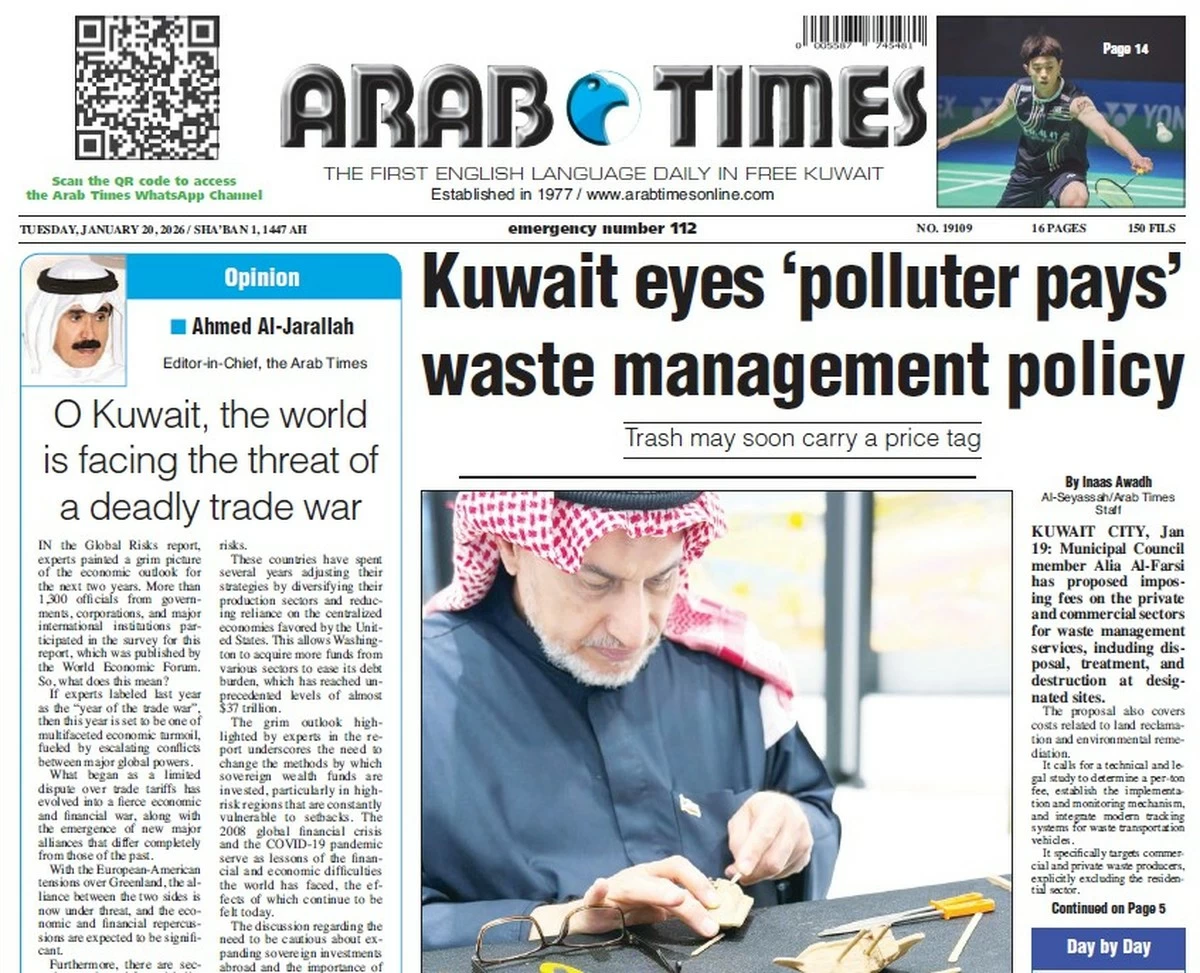05/11/2022
05/11/2022
BRAVO to what the headship of the Council of Ministers did by denying the claims it has opened the ministries’ doors to serve the parliamentarians.
If this happened, it would mean springing back to square one, and consequently resulting in the inability to get out of the impasse of mismanagement unless there is a sincere intention and determination to make services available to all citizens without relying on the legislators.
Undoubtedly, the most important step in the reform process is setting clear standards for all services and appointments, and adhering to them in order to eliminate sectarian and tribal mediation.
If this is achieved, it will automatically render the legislator to devote himself to the main task entrusted to him, which is to monitor and have oversight on the work of the government and legislation and follow up on people’s issues.
This will definitely end MP’s “wasta” to employ a holder of “duped” certificate or deprive an employee from promotion in order to appoint someone affiliated with this MP or an electoral key in his place.
Therefore, the government’s determination to work under the directives of the political leadership and not make room for the parliamentary intermediaries means starting to treat what the administrative system has suffered in the past three decades from slackness firstly due to poor planning and failure to benefit from the output of education, and secondly as a result of placing the unqualified in a position he does not deserve.
That is why we have seen the way ministries and official institutions have turned into what seems like farms for a particular tribe or family, or the region or sect.
Therefore, what Kuwait has lost as a result of this mismanagement is very great. Its continuation will lead to further deterioration, and decisions to benefit only people and not both the country and people.
Nonetheless, if the ministers will open their doors to the MPs, it would be preferable to detect a defect in a place or improve services in the state’s facilities, or clarify the suffering of a region, that is, to be the case as is the case in developed countries, thus render to Caesar the things that are Caesar’s, and to God the things that are God’s. Otherwise, nepotism and connections will be the norm.
All that the Kuwaitis hope for is that their country will not remain in the midst of adventures based on conflicts of interests between the influentials, parliamentarians and ministers, and that it will get out of this tunnel and move towards the path of production and development.
After the Amiri speech of June 22, measures were taken by the political leadership, especially with regard to eliminating impurities from the elections in order for the people to express their true will of who should represent them in the National Assembly.
Then came the speech at the opening of the current legislative term confirming the constants of reform that cannot be deviated from, and the declaration of His Highness, the Crown Prince, Sheikh Mishaal Al-Ahmad that the government is being monitored by the highest levels of leadership.
Based on this fact, the government must realize that any misplaced step means going backwards, and that the ministers and their head of the Cabinet know that they are responsible before Allah, then the leadership and the people.
They should not put themselves under suspicion by opening the doors for parliamentarians, and closing the doors of their institutions to the citizens.
Reform is not a slogan, but rather a path in order to preserve their destiny. Therefore, they must fear Allah in dealing with their people and their country.


